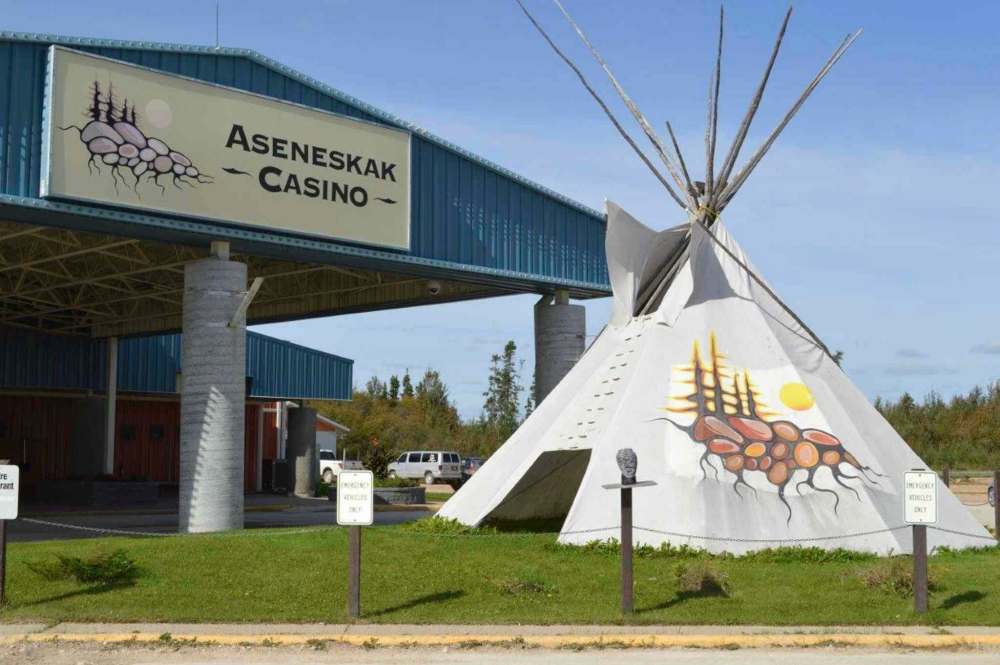Casino relocation not in the cards, Pallister says
Advertisement
Read this article for free:
or
Already have an account? Log in here »
To continue reading, please subscribe:
Monthly Digital Subscription
$1 per week for 24 weeks*
- Enjoy unlimited reading on winnipegfreepress.com
- Read the E-Edition, our digital replica newspaper
- Access News Break, our award-winning app
- Play interactive puzzles
*Billed as $4.00 plus GST every four weeks. After 24 weeks, price increases to the regular rate of $19.00 plus GST every four weeks. Offer available to new and qualified returning subscribers only. Cancel any time.
Monthly Digital Subscription
$4.75/week*
- Enjoy unlimited reading on winnipegfreepress.com
- Read the E-Edition, our digital replica newspaper
- Access News Break, our award-winning app
- Play interactive puzzles
*Billed as $19 plus GST every four weeks. Cancel any time.
To continue reading, please subscribe:
Add Free Press access to your Brandon Sun subscription for only an additional
$1 for the first 4 weeks*
*Your next subscription payment will increase by $1.00 and you will be charged $16.99 plus GST for four weeks. After four weeks, your payment will increase to $23.99 plus GST every four weeks.
Read unlimited articles for free today:
or
Already have an account? Log in here »
Hey there, time traveller!
This article was published 15/09/2016 (3309 days ago), so information in it may no longer be current.
Premier Brian Pallister has poured cold water on plans by a First Nation casino at The Pas to relocate to Winnipeg.
The owners of Aseneskak Casino at Opaskwayak Cree Nation — six First Nations from the area’s Swampy Cree Tribal Council — have been in discussions to move the casino to land near Assiniboia Downs to take advantage of a larger market.
The relocation would require provincial approval. The premier said Thursday it’s not in the cards.

“No, that’s not going to happen,” Pallister told reporters at a breakfast to kick off the United Way’s new fundraising drive.
“I just spoke in answer to another question about sustainable job creation and economic opportunity. We’re dealing today here with the United Way announcement that is trying to focus our resources of volunteer and charitable resources on bettering the lives of people. Gambling doesn’t do that,” Pallister said.
The premier said Manitoba is saturated with gaming facilities.
“We’re overserviced. We’re the most overserviced province in the country of Canada when it comes to gambling. I want people to get jobs. I want people to have opportunities to grow and learn and work together and help each other. The gambling industry isn’t going to do that. The previous government expanded gambling more than virtually any other jurisdiction in the country and it hasn’t solved their social problems. In fact, I think it’s made many of them worse. So, no. that’s not going to happen.”
Pallister was referring to the recently released 2016 Manitoba Gaming Market Study, which indicated the gaming market is oversupplied throughout the province, including in Winnipeg. The report, jointly commissioned by the province and the Assembly of Manitoba Chiefs, called Manitoba one of the “most penetrated gaming markets in North America.”
The report stated that Manitoba has the highest ratio of video lottery terminals per capita, and trails only Quebec in the total number of gaming machines. The report noted Manitobans put more than $1.5 billion into VLTs every year.
It noted any expansion in Winnipeg would take away from the two casinos already located within the city.
Chief Clarence Easter of Chemawawin Cree Nation told the Free Press earlier this week that the OCN casino will have to shut down in the next 2-1/2 years if it doesn’t move to a larger market.
The casino is one of the top five employers in The Pas, a town with a population of 5,500. There are about 140 jobs on the line if the casino shuts down — a major blow for The Pas, which is facing the loss of more than 300 jobs if Tolko Industries closes Dec. 2 as planned.
Pallister pointed out those jobs are also lost if the casino moves out of the community.
“The rationale for setting up casinos in First Nations reserves that the previous government used was that it was going to create jobs in those communities. So hardly, moving casinos out of northern communities into the city of Winnipeg isn’t going to create jobs in The Pas or Thompson or Flin Flon or anywhere else,” Pallister said.
Pallister said it is counterproductive for the government to use revenue from casinos to fund social programs made necessary by gambling problems.
“The money that’s generated from casino operations here in the city of Winnipeg, where we know that the market is already overserviced and saturated, the proceeds from those casinos goes to help Manitobans who need healthcare, who need education and disproportionally social services,” he said.
“In fact, aboriginal people in our province unfortunately require those supports more than virtually any other group. So what we’re trying to do here is make sure that we don’t cannibalize our own industries in our province, ever, whether it’s casino operations or anything else. What we want to do is see proper job creation and supports for communities.”
A memorandum of understanding still exists between the casino and Peguis First Nation to relocate the casino to land near Assiniboia Downs, but the province has the final say.
Pallister said he made his decision known to chiefs when he met privately with the Southern Chiefs Organization on Brokenhead First Nation on Tuesday and Wednesday.
ashley.prest@freepress.mb.ca
-with files from Kristin Annable and Dan Lett
History
Updated on Thursday, September 15, 2016 1:46 PM CDT: Photo added.



